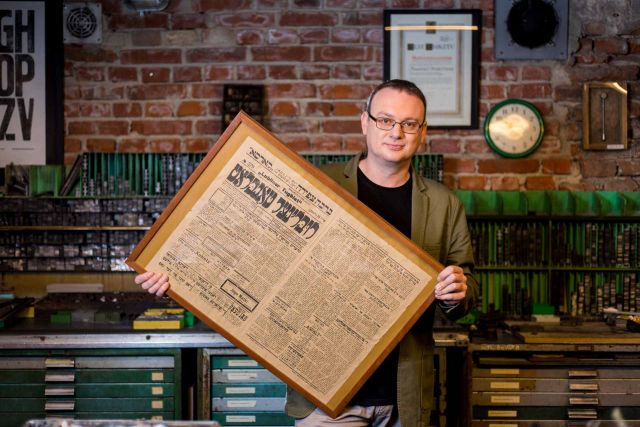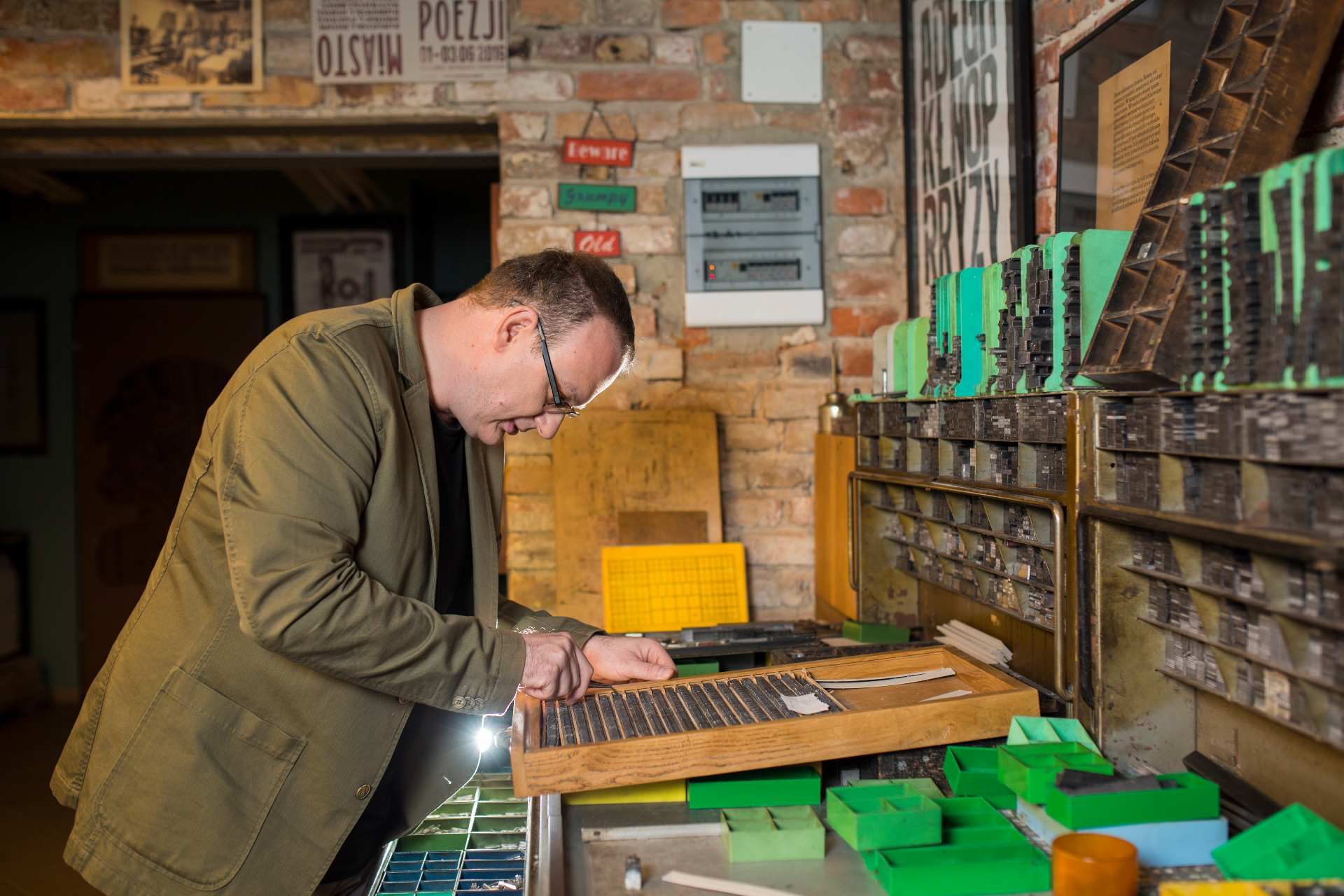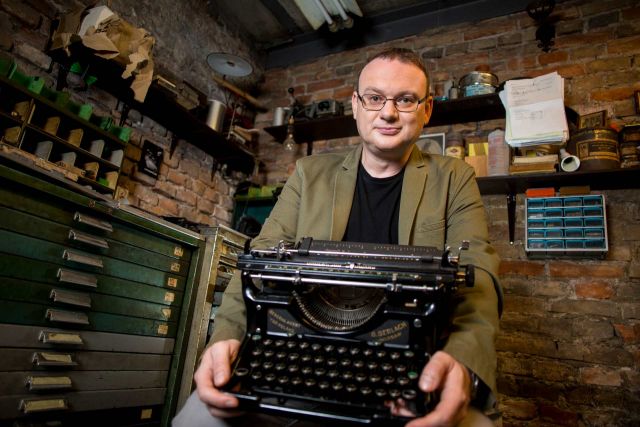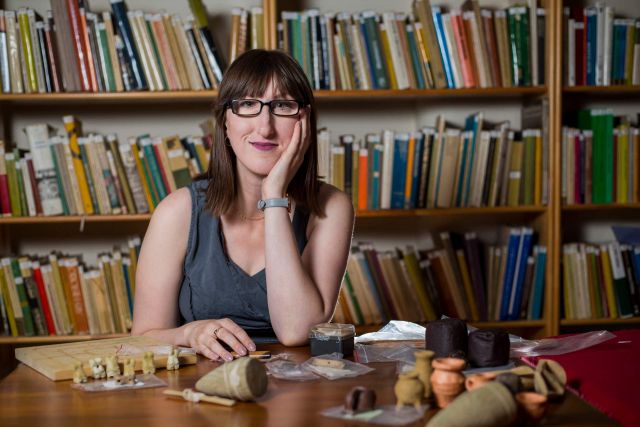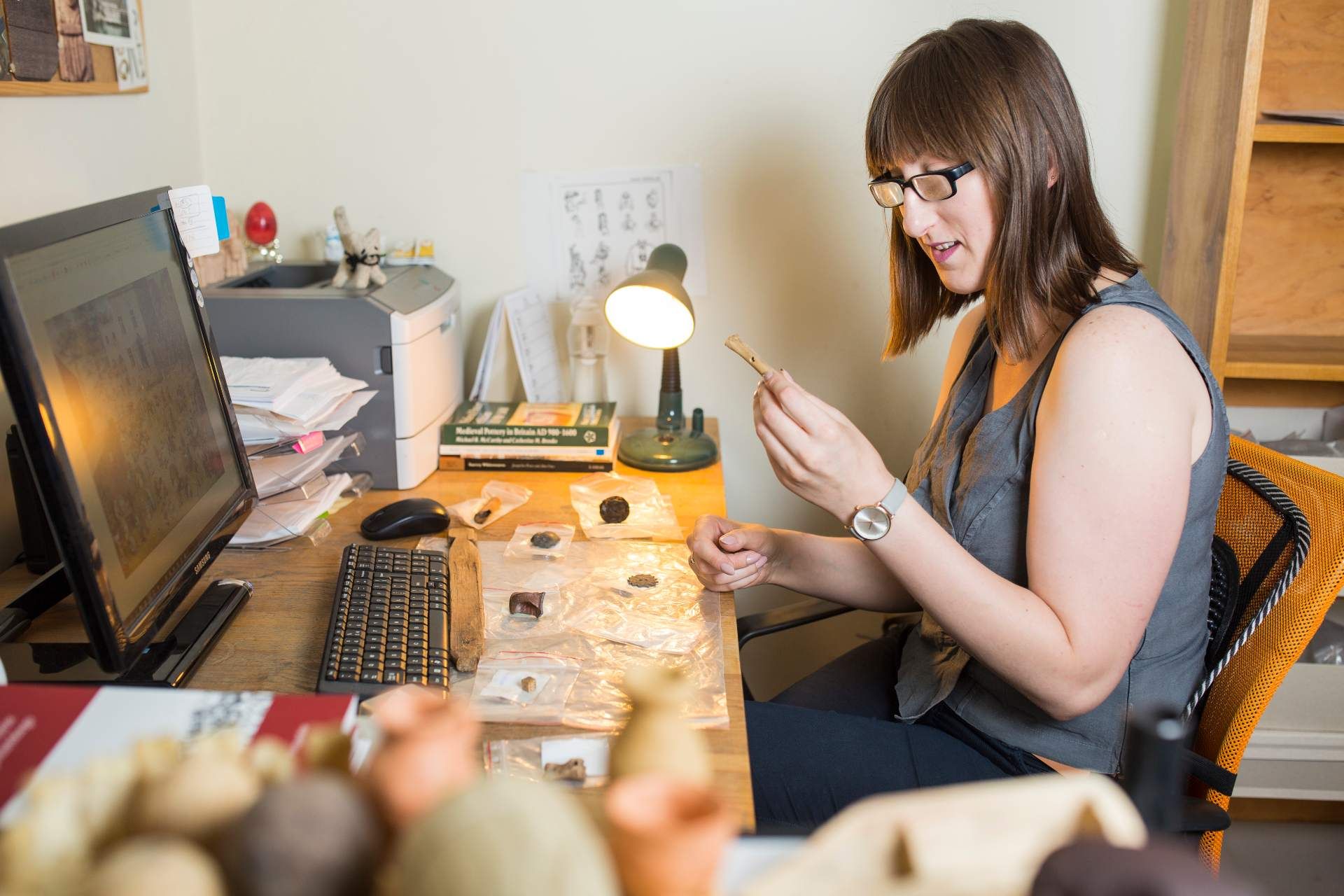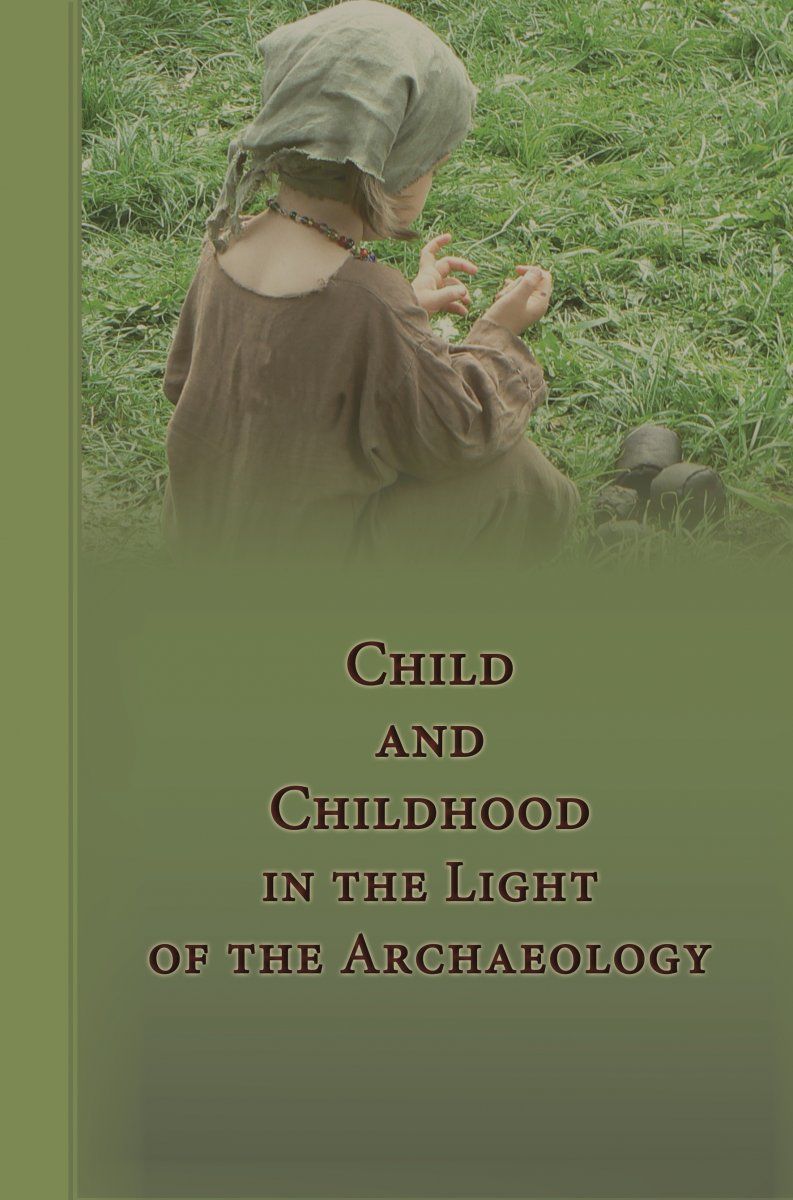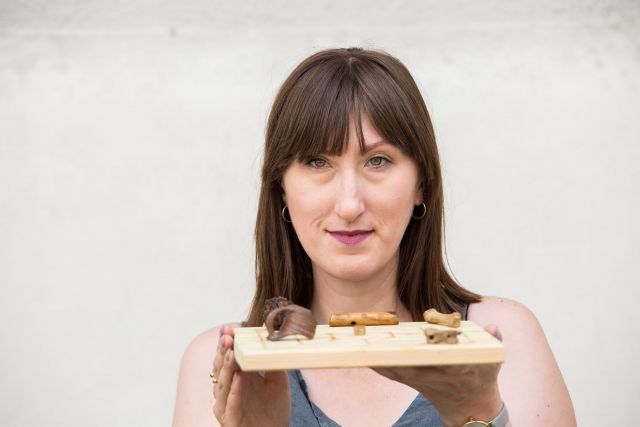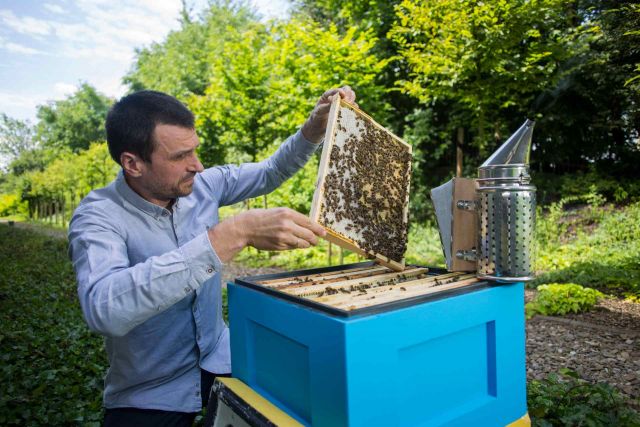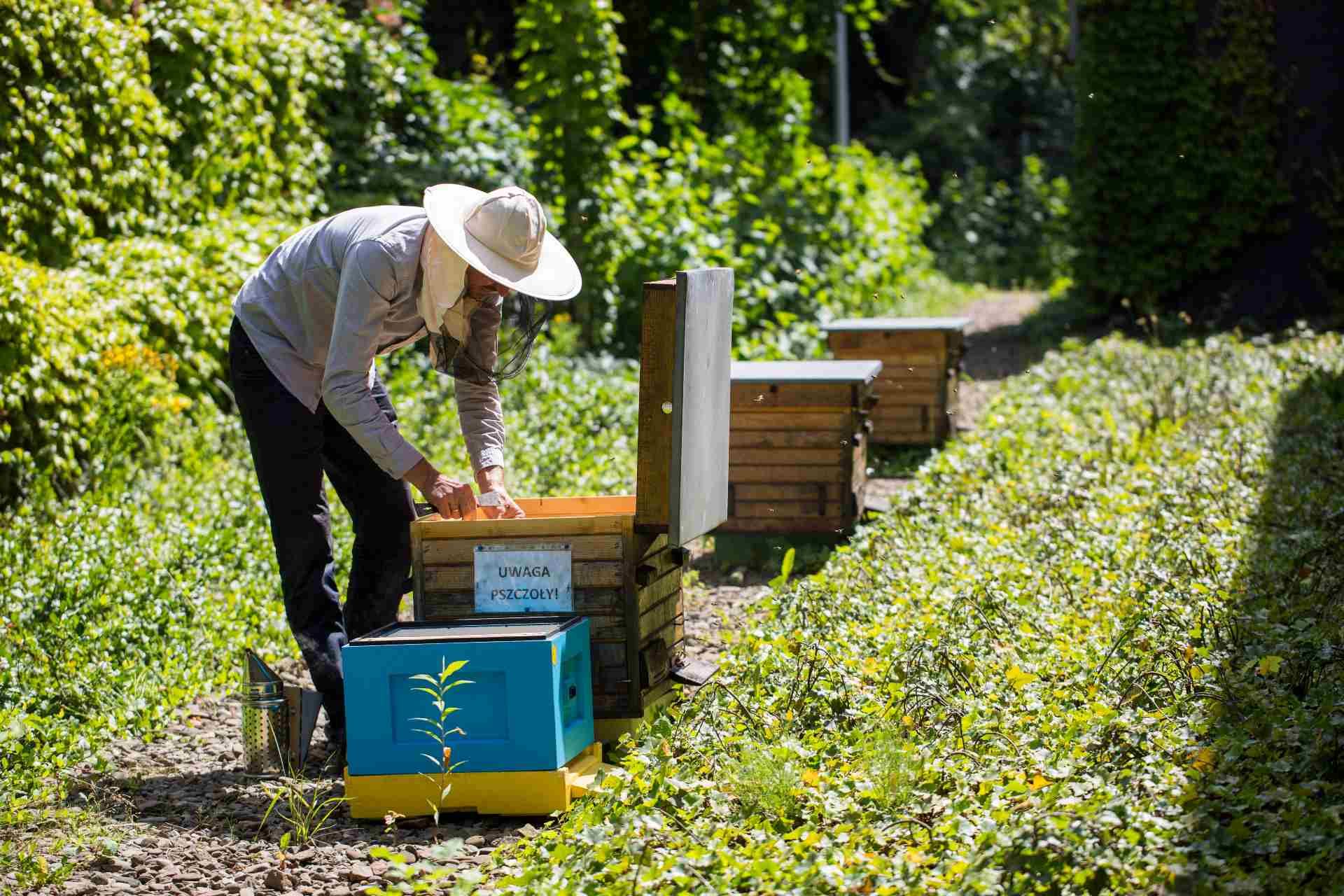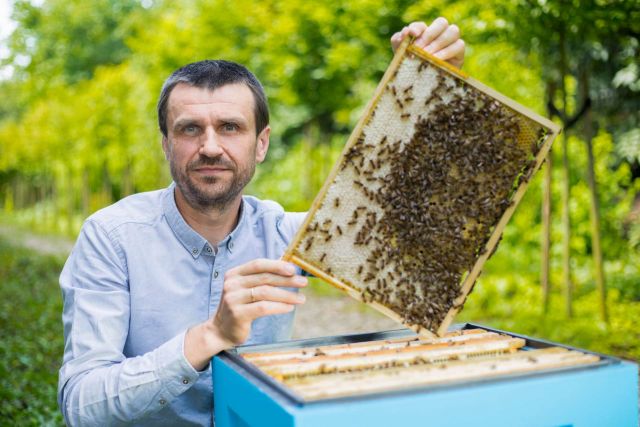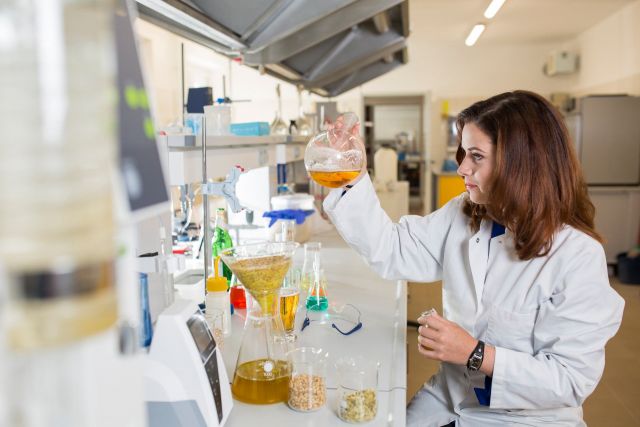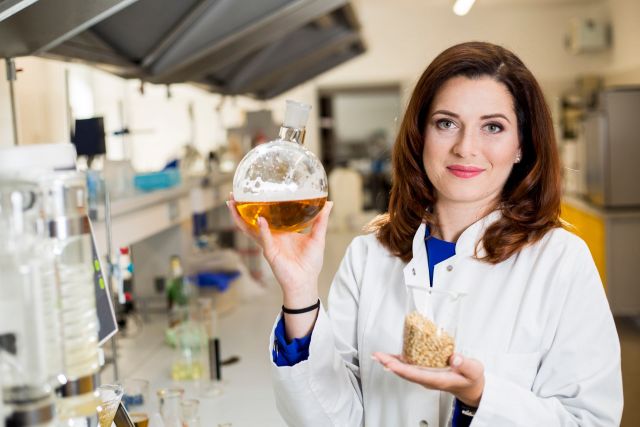Brewing is one of the oldest biotechnological food processing methods in the world. Because of the popularity of beer as a product, the brewing industry ranks among the most vibrant branches of the food sector. As science advances and consumer awareness grows, the issue of using new raw materials and optimising individual processes becomes increasingly important.
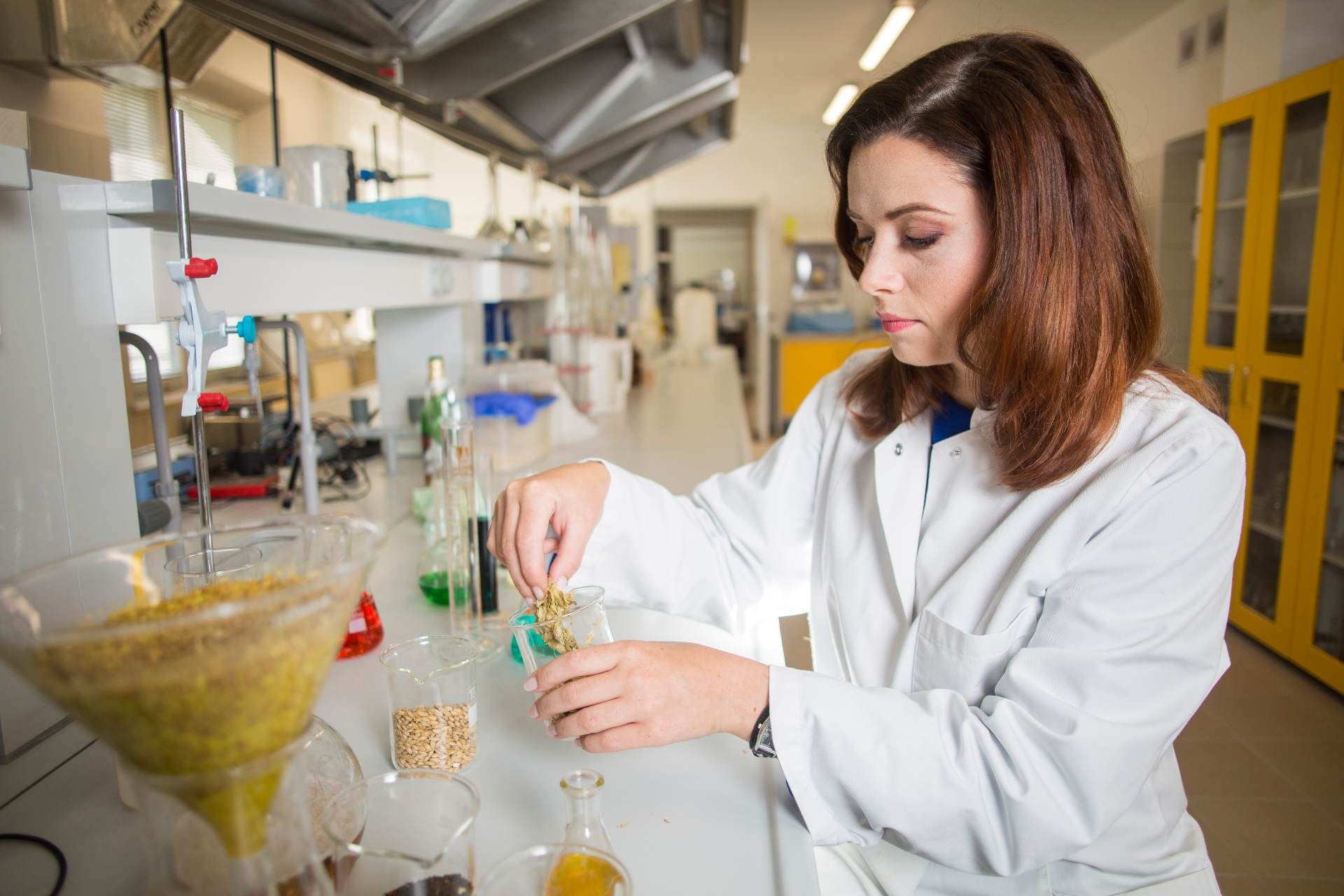 Photo by Michał Łepecki
The efficiency of the processes used in breweries depends primarily on the selection of raw materials and various technological parameters. To ensure the final product’s highest possible quality, it is necessary to develop new technologies and devices, as well as employ new raw materials or accessories. In particular, this applies to new recipes for obtaining wort. Large-scale technology trials should be preceded by lab experiments, which allow many variants to be compared and contrasted, while keeping the conditions of wort production stable and constant. As the market becomes more and more saturated with beer products, craft beers and sophisticated recipes progressively increase their market share. And it’s not only craft breweries – large industrial breweries are also interested in innovative raw materials and technologies. Introducing malt substitutes or unique raw materials into recipes often involves changing the basic physico-chemical properties of wort (such as pH, extract, colour, turbidity or mineral content). Experiments have also been carried out to completely replace barley malt with non-malted substitutes (e.g. barley, spelt, wheat, corn). Such modifications are introduced for economic reasons (cheaper resources) and/or questions of taste and health (achieving new, better features of the final product).
Photo by Michał Łepecki
The efficiency of the processes used in breweries depends primarily on the selection of raw materials and various technological parameters. To ensure the final product’s highest possible quality, it is necessary to develop new technologies and devices, as well as employ new raw materials or accessories. In particular, this applies to new recipes for obtaining wort. Large-scale technology trials should be preceded by lab experiments, which allow many variants to be compared and contrasted, while keeping the conditions of wort production stable and constant. As the market becomes more and more saturated with beer products, craft beers and sophisticated recipes progressively increase their market share. And it’s not only craft breweries – large industrial breweries are also interested in innovative raw materials and technologies. Introducing malt substitutes or unique raw materials into recipes often involves changing the basic physico-chemical properties of wort (such as pH, extract, colour, turbidity or mineral content). Experiments have also been carried out to completely replace barley malt with non-malted substitutes (e.g. barley, spelt, wheat, corn). Such modifications are introduced for economic reasons (cheaper resources) and/or questions of taste and health (achieving new, better features of the final product).
Innovative lautering solutions aim to improve current methods of separating hot precipitates. Most breweries in the world are equipped with a special tank, usually referred to as a whirlpool vat. A commonly-used solution, whirlpool vats are energy-saving and efficient. Hence the attempts to further increase their efficiency by slightly tweaking their structure. Wort is poured into the vat through a hole tangential to its wall, which makes a cone of hot precipitate form at the bottom, a process assisted by whirling. The phenomenon occurs naturally and spontaneously, and is known as the “tea cup effect”, first described by Albert Einstein in 1926. Cutting-edge computer image simulation and analysis methods allow us to understand it better.
More recently, experimental studies of liquid flow in whirlpool vats have been conducted on a broader scale, using state-of-the-art measurement methods, such as particle image velocimetry (PIV). PIV is especially useful for the analysis of the flow velocity field where a measurement sensor cannot be inserted into the tank. Measurement relies on particles that disperse laser light, allowing the motion of individual particles to be detected.
The idea to analyse the technological aspects of lautering and introduce structural changes was borne out of projects conducted with entrepreneurs, research centres (in Poland and abroad) and breweries (craft and industrial). Considering the current state of knowledge in the field, the research topic is highly innovative and its solutions and conclusions will facilitate the production of clear wort, regardless of the raw materials employed.
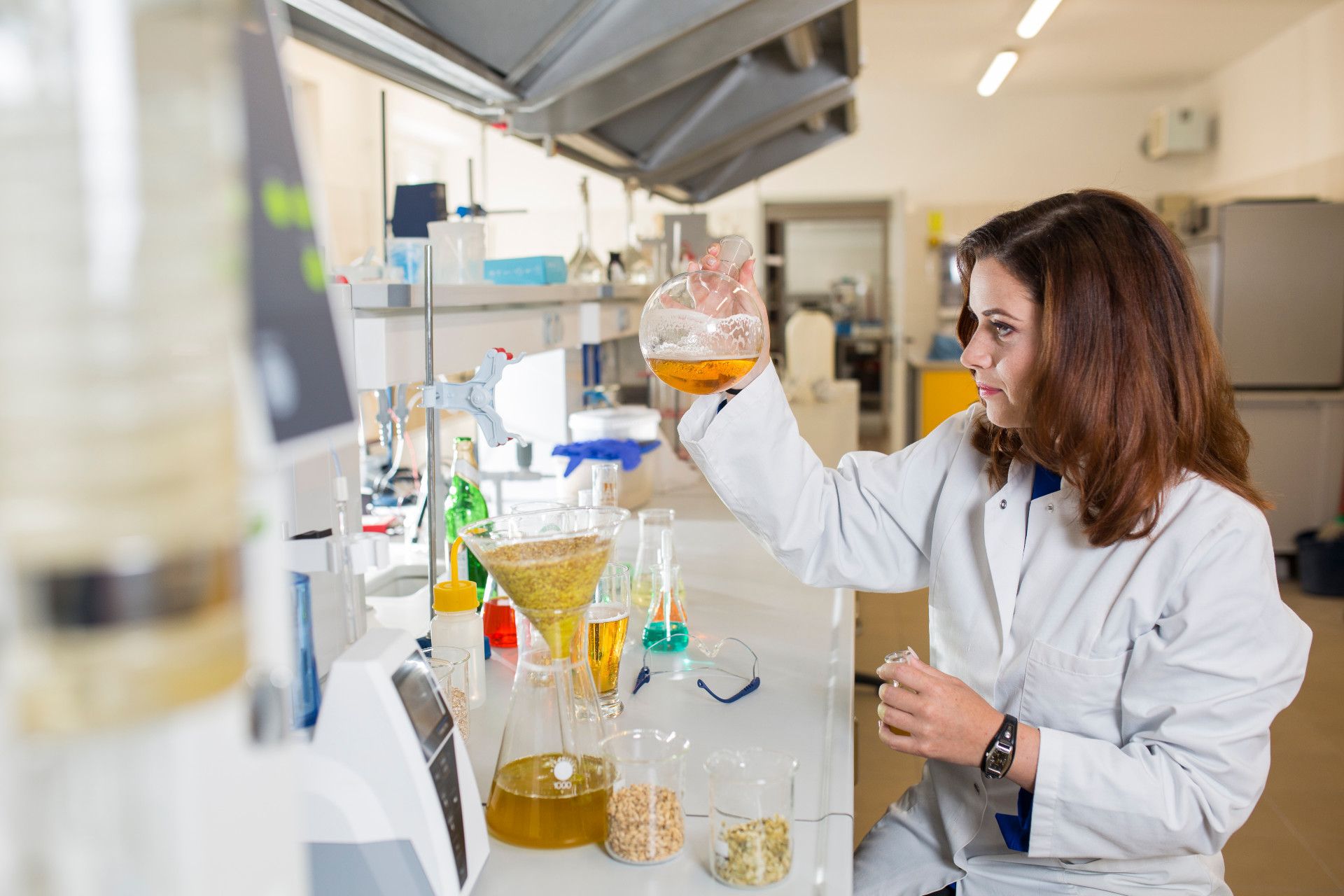 Photo by Michał Łepecki
Experiments conducted within the framework of the project allowed us to show that using a non-malted substitute (barley or spelt) extends saccharification and mash filtration times, reduces wort volume, and simplifies filtration efficiency, as compared with 100% barley malt samples. Adding non-malted spelt (more than 15% batch content) considerably increases the colour intensity of congress wort. On the other hand, the chemical composition of water (deionized or process water) and a greater percentage share of non-malted grain (barley or spelt) in the batch (to 30%) considerably increases the mass of the hot precipitate and the concentration of Mn2+ ions both in malted worts and those with a 30% barley content; the concentration of these ions drops significantly in hot precipitates. Using a partition as a structural modification in a whirlpool vat reduces the time for which primary flow can be observed, with occurs at a higher velocity, closer to the centre of the bottom of the vat. A partition shaped like an isosceles triangle is the most effective at improving whirling conditions in a tangentially filled vat when placed near the bottom at a 270° angle with respect to the inlet. The most advantageous structural solution contributes to improving the conditions of wort lautering (separating the hot precipitate) and allows a more compact precipitate cone to be obtained in the centre the bottom of the vat.
Photo by Michał Łepecki
Experiments conducted within the framework of the project allowed us to show that using a non-malted substitute (barley or spelt) extends saccharification and mash filtration times, reduces wort volume, and simplifies filtration efficiency, as compared with 100% barley malt samples. Adding non-malted spelt (more than 15% batch content) considerably increases the colour intensity of congress wort. On the other hand, the chemical composition of water (deionized or process water) and a greater percentage share of non-malted grain (barley or spelt) in the batch (to 30%) considerably increases the mass of the hot precipitate and the concentration of Mn2+ ions both in malted worts and those with a 30% barley content; the concentration of these ions drops significantly in hot precipitates. Using a partition as a structural modification in a whirlpool vat reduces the time for which primary flow can be observed, with occurs at a higher velocity, closer to the centre of the bottom of the vat. A partition shaped like an isosceles triangle is the most effective at improving whirling conditions in a tangentially filled vat when placed near the bottom at a 270° angle with respect to the inlet. The most advantageous structural solution contributes to improving the conditions of wort lautering (separating the hot precipitate) and allows a more compact precipitate cone to be obtained in the centre the bottom of the vat.
Project title: Technological aspects of beer wort clarification including the modified method of the hot trub separation using the whirlpool vat

